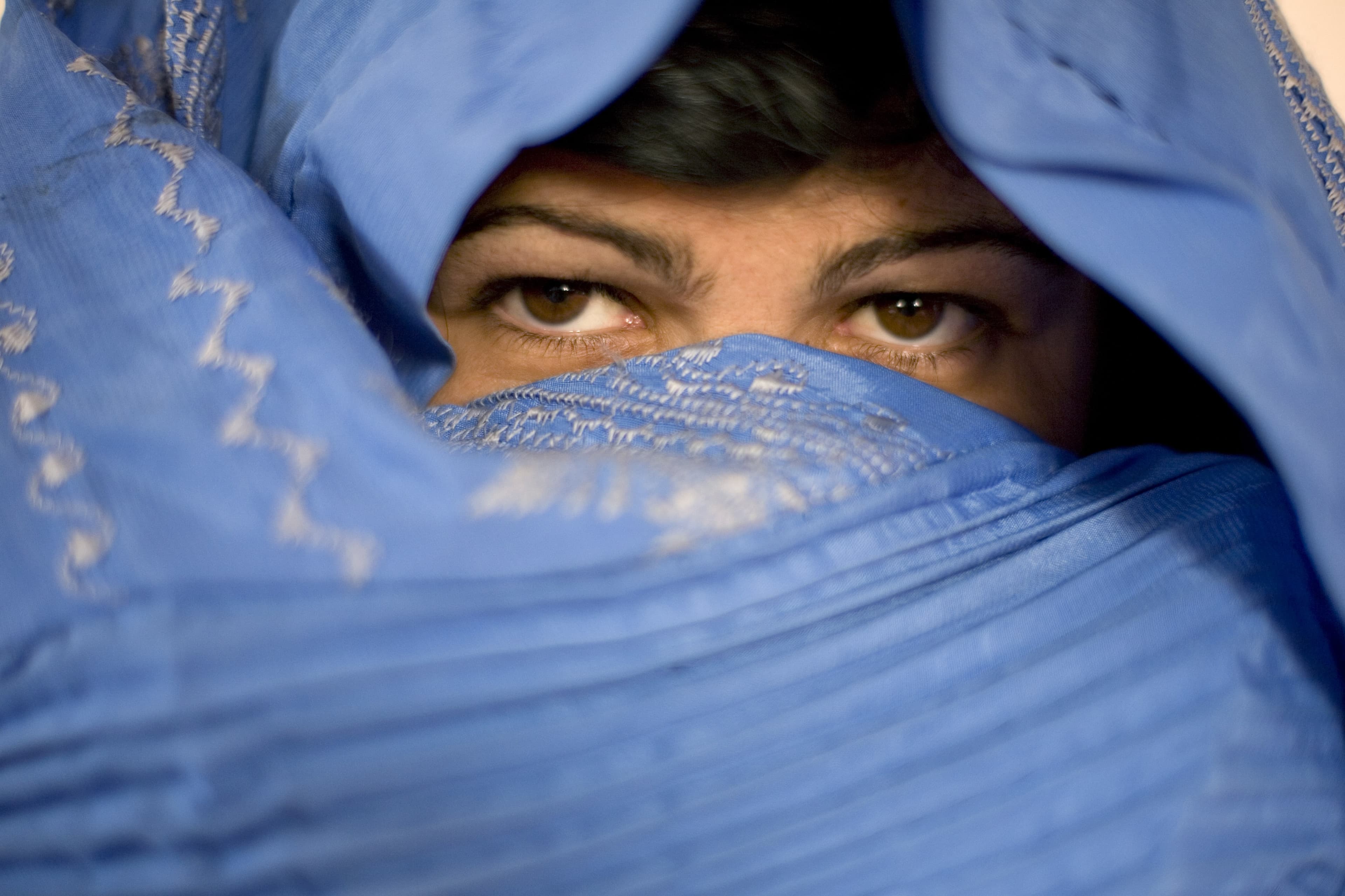BBC South Asia and Afghanistan correspondent
Gusts of wind blew dust up off the ground as Ghulam Mohiddin and his wife Nazo walked towards the graveyard where all their children are buried.
They showed us the graves of the three boys they lost in the past two years – one-year-old Rahmat, seven-month-old Koatan and most recently, three-month-old Faisal Ahmad.
All three suffered from malnutrition, say Ghulam and Nazo.
“Can you imagine how painful it’s been for me to lose three children? One minute there’s a baby in your arms, the next minute they are empty,” says Nazo.
“I hope every day that angels would somehow put my babies back in our home.”
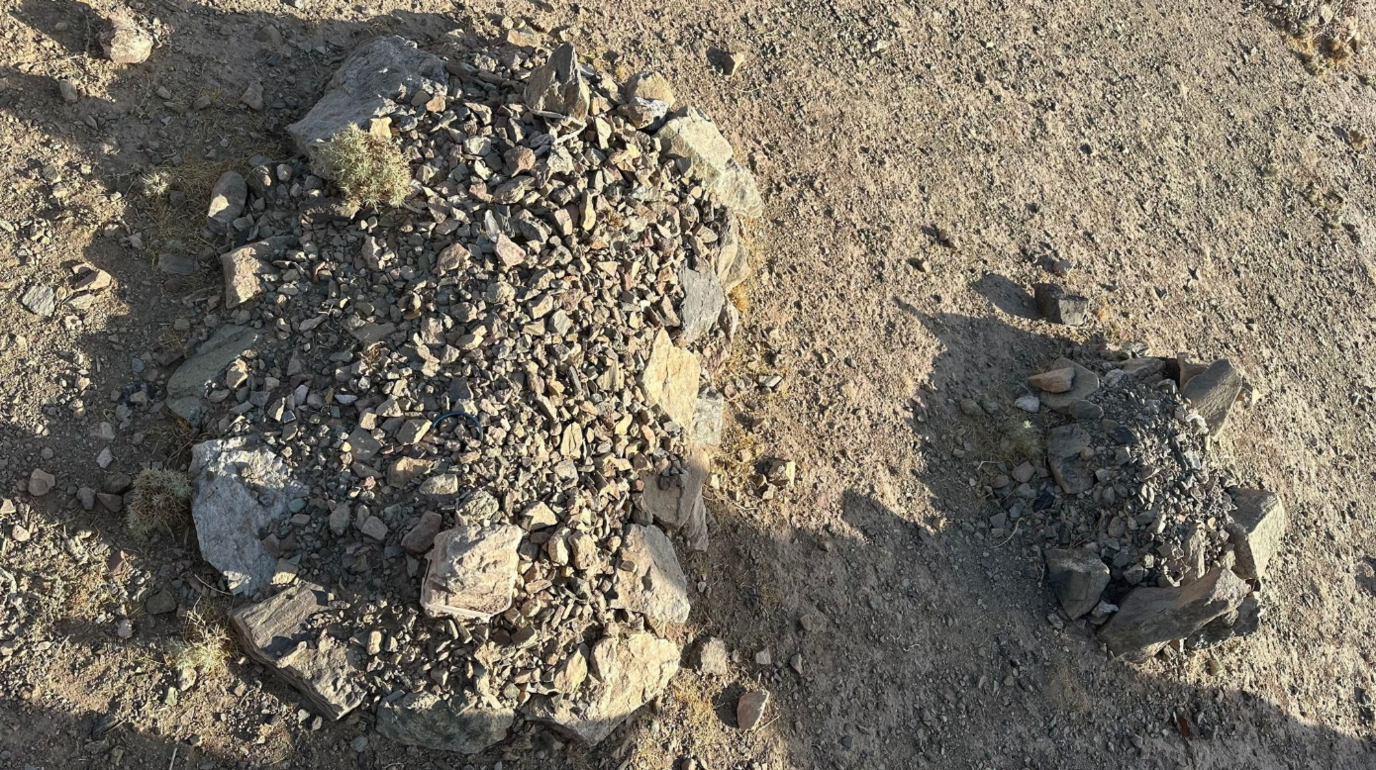
‘Three million children in peril’
There are days the couple go without food. They break walnut shells for a living in the Sheidaee settlement just outside the city of Herat in western Afghanistan and receive no help from the Taliban government or from NGOs.
“Watching helplessly as my children cried out of hunger, it felt like my body was erupting in flames. It felt like someone was cutting me into half with a saw from my head to my feet,” said Ghulam.
The deaths of their children are not recorded anywhere, but it’s evidence of a silent wave of mortality engulfing Afghanistan’s youngest, as the country is pushed into what the UN calls an unprecedented crisis of hunger.
“We started the year with the highest increase in child malnutrition ever recorded in Afghanistan. But things have got worse from there,” says John Aylieff, the World Food Programme’s country director.
“Food assistance kept a lid in this country on hunger and malnutrition, particularly for the bottom five million who really can’t cope without international support. That lid has now been lifted. The soaring of the malnutrition is placing the lives of more than three million children in peril.”
- ‘My wife died giving birth after Trump cut funding to our clinic’
- Published14 September
Aid has sharply declined because the single largest donor, the US, stopped nearly all aid to Afghanistan earlier this year. But WFP says eight or nine other donors who funded them in the last two years have also stopped this year, and many others are giving much less than they were last year.
One reason is donors are responding to a number of crises around the world. But the Taliban government’s policies also affect how much the world is willing to help.
What are they doing to help their citizens?
“Those who are facing malnutrition, those who are facing hunger, it’s because of sanctions, because of aid cuts by international organisations. It’s not because of the government,” the head of the Taliban’s political office in Doha, Suhail Shaheen, told the BBC.
“The government has expanded its assistance to the people and is doing what is in its capacity, But our budget is based on internal revenues, and we are facing sanctions.”
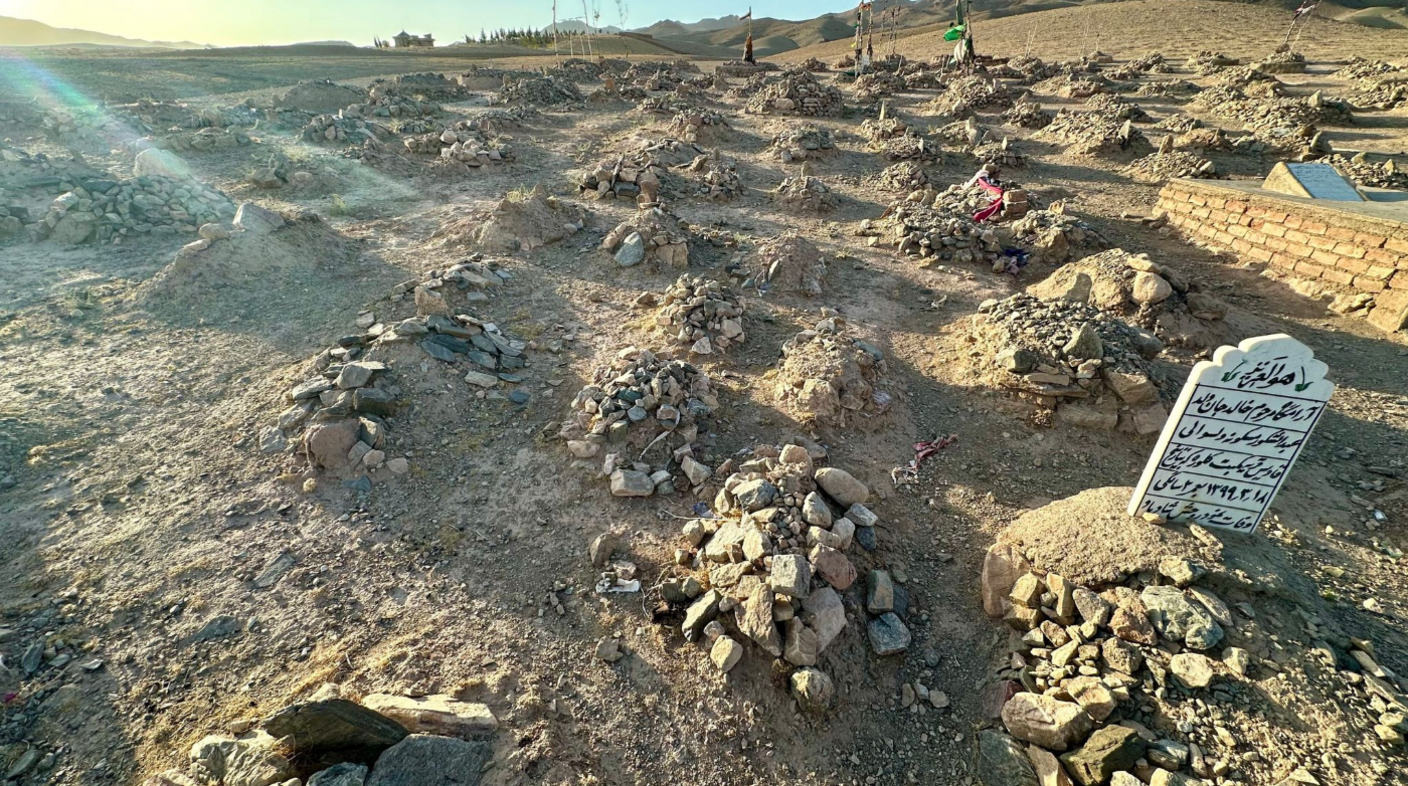
But the Taliban’s intransigence on women’s rights affects its bid for international recognition, and for the sanctions against it to be lifted. Other decisions, like the recent enforcement of a previously announced ban on Afghan women working for NGOs is putting the delivery of “life-saving humanitarian assistance at serious risk”, the UN says.
The malnutrition emergency is compounded by other factors too – a severe drought that has affected agricultural incomes in more than half of Afghanistan’s provinces, and the forced return of more than two million Afghans from Iran and Pakistan, reducing the remittances they send back.
‘Hungry all the time’
At the Sheidaee graveyard we found startling evidence of child deaths. There were no records of the people buried there, so we counted the graves ourselves. Roughly two-thirds of the hundreds of graves were of children – it was easy to tell the small graves from the bigger ones.
Villagers told us the graveyard is relatively new, between two to three years old. They also confirmed that it was not a specific graveyard for children.
As we walked through the settlement in Sheidaee, people came out carrying their children. Rahila was carrying Hibatullah who, at two, cannot stand up. Durkhanee brought out her son Mohammad Yusuf, who’s also nearly two and unable to stand.
Nearly half of all Afghan children under the age of five are stunted, the UN says.
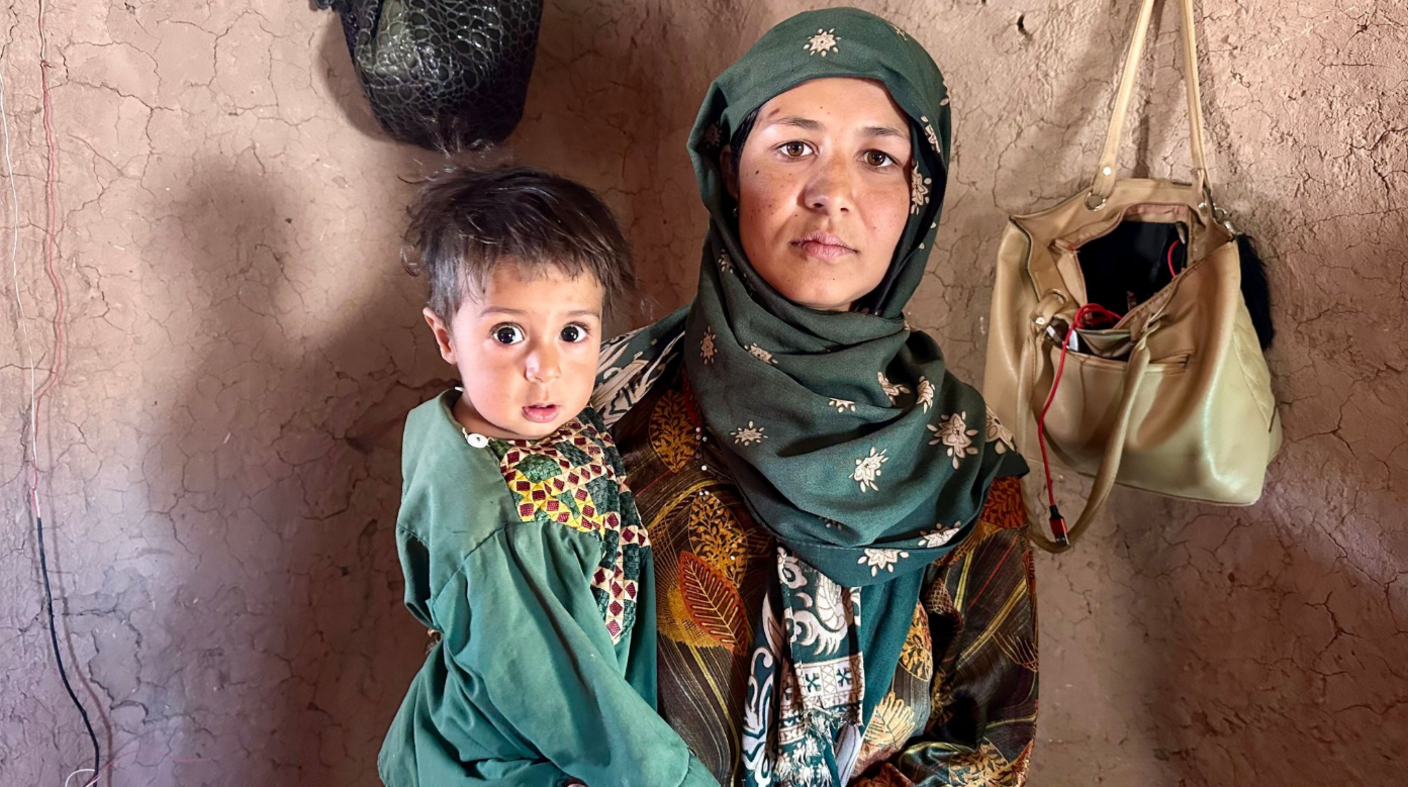
In one of the mud and clay homes, Hanifa Sayedi’s one-year-old son Rafiullah could barely hold himself up, even while he’s sitting.
“I took him to a clinic where they told me he’s malnourished, but I don’t have the money to keep taking him there,” she says. She and her husband have two other children, and dry pieces of bread with Afghan green tea are the only meals the family can afford. Some days they don’t eat.
Rafiullah doesn’t have teeth yet, so Hanifa soaks the bread in the tea and feeds him.
“But it’s not enough and he’s hungry all the time. To make him sleep, I give him these medicines,” she says, pulling out two strips of tablets.
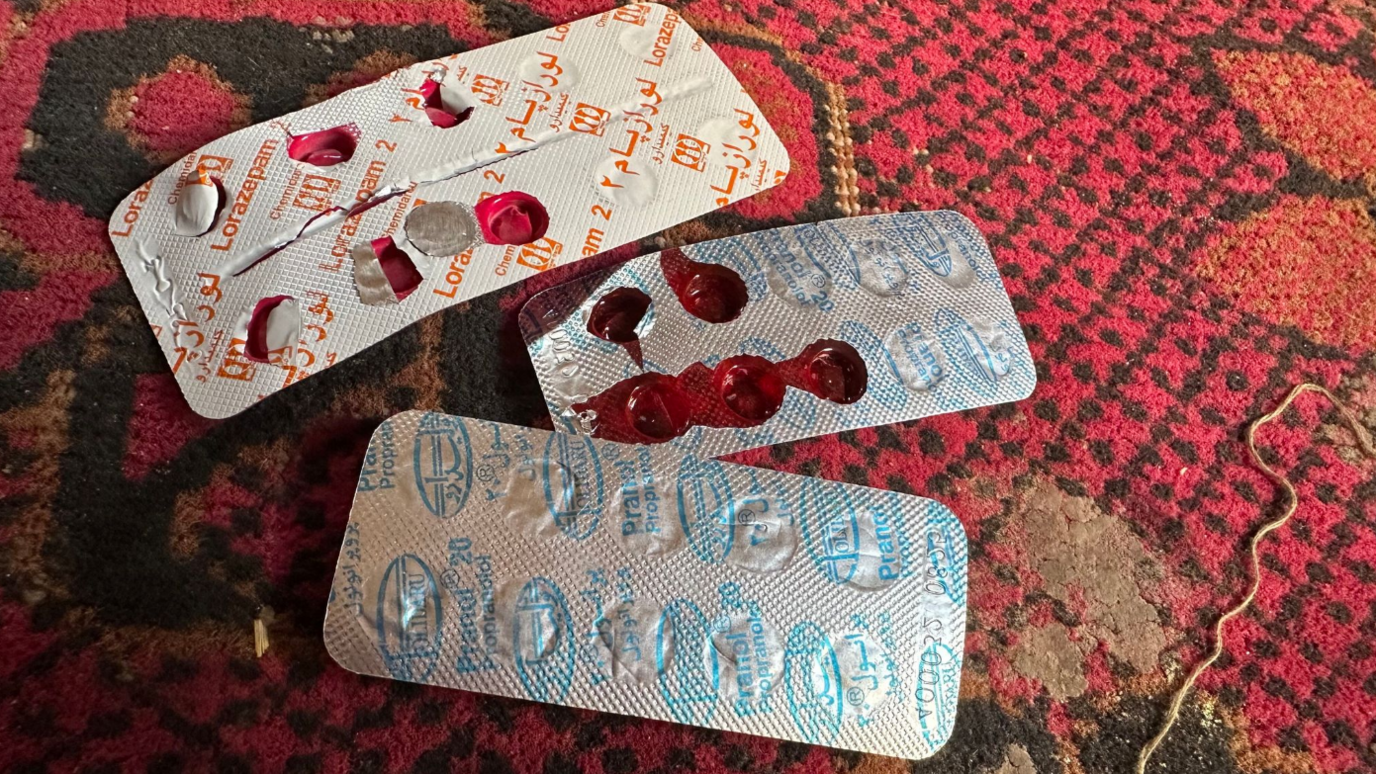
One is a strip of Lorazepam, an anti-anxiety medicine, the other is Propanolol, a drug that controls high blood pressure. One strip costs 10 Afghani ($0.15; £0.13) the same amount as one piece of bread. Hanifa says she bought them at a pharmacy, saying she wanted sleeping pills for herself.
“I feel so guilty that my children are going hungry and I can’t do much. I feel suffocated and like I should kill my children and myself,” she says.
Doctors say that when given to young children, drugs such as these can damage the child’s heart, kidneys and liver, and can even be life-threatening if given for a prolonged period of time.
- See original BBC post HERE
